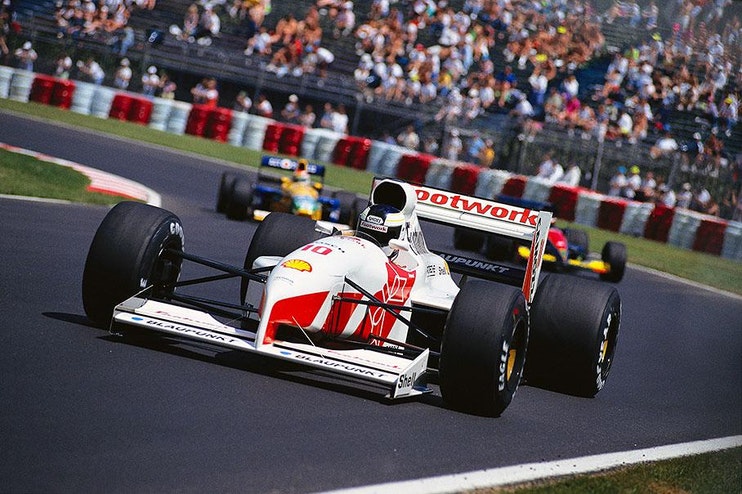
It’s no big secret that Volkswagen is desperate to get one or two of its myriad luxury brands involved in the growing behemoth that is Formula One when the new engine regulations come around in 2026. Right now the consensus seems to be that Audi and Porsche will be joining the fray, but in recent months the idea has moved from both brands entering as constructors to both brands entering as engine suppliers for existing teams.
According to the UK’s Car Magazine, Audi is considering purchasing McLaren outright, from the road car company to its Formula One, IndyCar, and Extreme E efforts, while Porsche has its sights set on an engine supply deal for the Red Bull Racing empire. Both are very interesting, but this being a Porsche site, we’re going to spend our time speculating about the latter.
So why is now the right time for Porsche to join forces with Red Bull? Well, for one thing, Red Bull is an extremely successful relatively young team with a massive steady flow of cash, so it doesn’t seem like the team will be getting much worse than top three any time soon. For another thing, Red Bull’s engine supplier Honda recently exited the sport at the end of a championship-winning 2021 season.
With Honda’s departure, the keys to the engine building kingdom have been handed over to Red Bull. Because the Honda engines are still legal for the 2022 regulations and beyond, Red Bull Racing will take over building those engines from Honda and power its own chassis with its own engines. The engineering has already been done, and the engines have proven solid, so with some luck they’ll still be powerful and reliable in the coming years. In 2026 a new set of regulations will be put into place, aimed at providing a lower cost for suppliers, while more than tripling the level of power output available from the hybrid electric motors (from 120 kW to 350 kW). While Red Bull could theoretically engineer its own powertrain for the 2026 regulations, there’s practically nobody better prepared to build a small displacement engine and electric motor than LMP1 champions and Formula E competitors Porsche Motorsport.
Audi and Porsche would likely collaborate on the drivetrain design, meaning McLaren, Red Bull, and Alpha Tauri would share the same engine but branded differently. The current state of engine supply in Formula One is a bit tenuous with Honda’s departure. Mercedes currently builds its own engines, while supplying them to Williams and Aston Martin. Similarly Ferrari engines are found in the back of cars from the Scuderia itself, as well as Alfa Romeo and Haas, though the Alfa contract is allegedly up in the air right now. Alpine is the only team on the grid running Renault engines. So three engine manufacturers, and Red Bull builds its own. That’s not a great look for what it supposed to be the pinnacle of motorsport.
The sport has actively been courting a Volkswagen-backed entry for the next generation of powertrain regulations. VW apparently wanted F1 to be powered by a high-output 2-liter turbocharged four cylinder, but Ferrari outright refused to build a four pot motor, so the 1.6-liter V6 will stay. I have long been a largely impartial Formula One fan, not really rooting for any particular team, but you can bet I’ll be cheering on the Porsche Red Bulls if it comes to that in 2026. I do hope that this effort doesn’t come at the expense of Porsche’s Formula E team, however, as I would like both efforts to continue forward.
Porsche’s most recent foray into Formula One with Footwork in the early 1990s (pictured above) did not go so well, but the engineering behind it was eventually repurposed into the high-revving V10 we got in the iconic Carrera GT, so it wasn’t all bad. Here’s hoping a Porsche Red Bull tie-up would really have wings.
